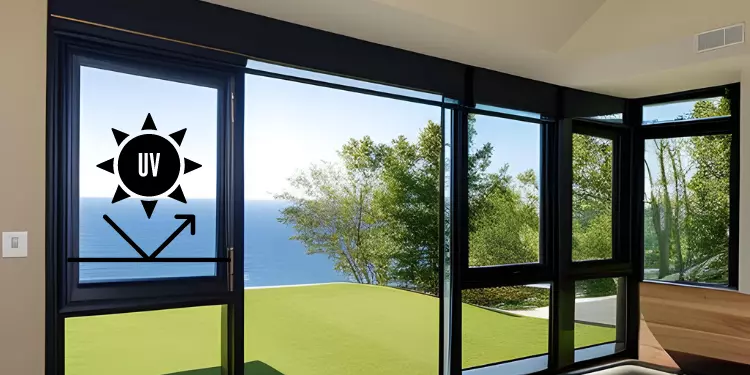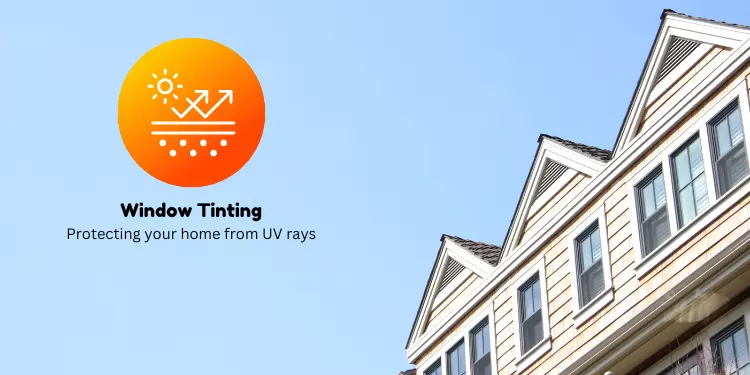Table of Contents
1 Introduction
Our homes are our sanctuaries, providing us with comfort, security, and a place to unwind. However, the sun’s harmful UV rays can damage our interiors, fade furniture, and pose health risks. That’s where UV protection window film comes in. In this article, we will explore the benefits of using window film to safeguard your home and the essential factors to consider when choosing the right product.
2 Understanding UV Rays
UV rays are a form of radiation emitted by the sun that consists of UVA, UVB, and UVC rays. While the ozone layer filters out most of the harmful UVC rays, UVA and UVB rays can still penetrate through windows and cause damage to our skin and belongings.
3 The Importance of UV Protection

Protecting ourselves from UV rays is crucial to prevent skin cancer, premature aging, and other related health issues. Additionally, UV rays can fade and deteriorate our furniture, flooring, and artwork over time, diminishing their value and appearance.
4 How UV Protection Window Film Works
UV protection window film acts as a shield, blocking up to 99% of UV rays from entering your home. It consists of a thin, transparent layer that is applied directly to your windows, providing an added layer of protection without obstructing your view or natural light.
5 Benefits of UV Protection Window Film
1. Preserves Interior Furnishings
By reducing UV exposure, window film helps preserve the colors and integrity of your furniture, carpets, and curtains, ensuring they stay vibrant and beautiful for years to come.
2. Reduces Health Risks
Minimizing UV rays entering your home helps safeguard your family’s health, reducing the risk of skin cancer and preventing other UV-related health conditions.
3. Enhances Energy Efficiency
Window film improves the insulation properties of your windows, reducing heat transfer and enhancing energy efficiency. This helps maintain a comfortable indoor temperature and reduces cooling costs.
4. Increases Privacy
Certain types of window film, such as decorative or frosted options, offer privacy during the day while still allowing natural light to filter through. They can be an excellent solution for bathrooms or rooms facing busy streets.
5. Adds Aesthetic Appeal
Window film comes in various designs and patterns, allowing you to add a decorative touch to your windows. It can complement your interior decor, add visual interest, or create a sense of privacy without sacrificing natural light.

6 Types of UV Protection Window Film
Clear Window Film
Clear window film provides excellent UV protection without altering the appearance of your windows. It is an ideal choice if you want to maintain the existing look while reaping the benefits of UV reduction.
Tinted Window Film
Tinted window film not only blocks UV rays but also reduces glare and heat. It can enhance the aesthetics of your home while providing an added layer of privacy.
Reflective Window Film
Reflective window film offers both privacy and UV protection. Its mirrored appearance reflects sunlight, reducing heat and glare while maintaining a one-way view from the inside.
Decorative Window Film
Decorative window film combines aesthetics with UV protection. It allows you to personalize your windows with patterns, textures, or frosted designs while keeping your home protected from harmful rays.
7 Factors to Consider When Choosing Window Film
To select the right window film for your home, consider the following factors:
UV Rejection Rate
Ensure the film you choose offers a high UV rejection rate, preferably 99% or higher, to maximize protection for your interior and your family.
Visible Light Transmission
Consider the desired level of natural light you want in your space. Different films offer varying levels of visible light transmission, allowing you to choose one that suits your preferences.
Heat Rejection
If you live in a hot climate or have windows that face direct sunlight, opt for a window film with high heat rejection properties. This will help keep your space cool and comfortable.
Glare Reduction
Window film can significantly reduce glare, making it easier to watch television, work on a computer, or relax without being bothered by excessive sunlight.
Warranty and Durability
Check for warranties and ensure the film is durable and resistant to scratches or discoloration. A reliable warranty will give you peace of mind and protect your investment.
8 DIY vs. Professional Installation
While some window films are suitable for DIY installation, others may require professional expertise. Consider your skill level, the complexity of the installation, and the size of the project before deciding.
9 How to Maintain UV Protection Window Film
To ensure your window film continues to perform optimally, follow these maintenance tips:
- Clean the film regularly using a non-abrasive, ammonia-free cleaner.
- Use a soft cloth or sponge to avoid scratching the film.
- Avoid using sharp or abrasive tools that could damage the film.
- Be gentle when opening or closing windows to prevent peeling or lifting.
10 Conclusion
Protecting your home from UV rays is essential for the longevity of your belongings and the well-being of your family. UV protection window film offers a practical and stylish solution to safeguard your space while maintaining a comfortable and visually appealing environment.
11 Frequently Asked Questions (FAQs)
1. Does UV protection window film affect natural light?
No, UV protection window film blocks harmful UV rays without significantly reducing the amount of natural light entering your home.
2. Can I install window film on my own?
Yes, certain window films are designed for DIY installation. However, for larger or more complex projects, professional installation is recommended.
3. How long does UV protection window film last?
The lifespan of window film varies depending on the quality of the product and proper maintenance. Most high-quality films can last up to 10 years or more.
4. Is window film removable?
Yes, window film is typically removable without causing damage to your windows. However, the ease of removal may vary based on the
specific film and installation method.
5. Can window film be applied to all types of windows?
Window film can be applied to most types of windows, including single-pane, double-pane, and tempered glass. However, certain films may not be suitable for use on plastic or acrylic windows.

















